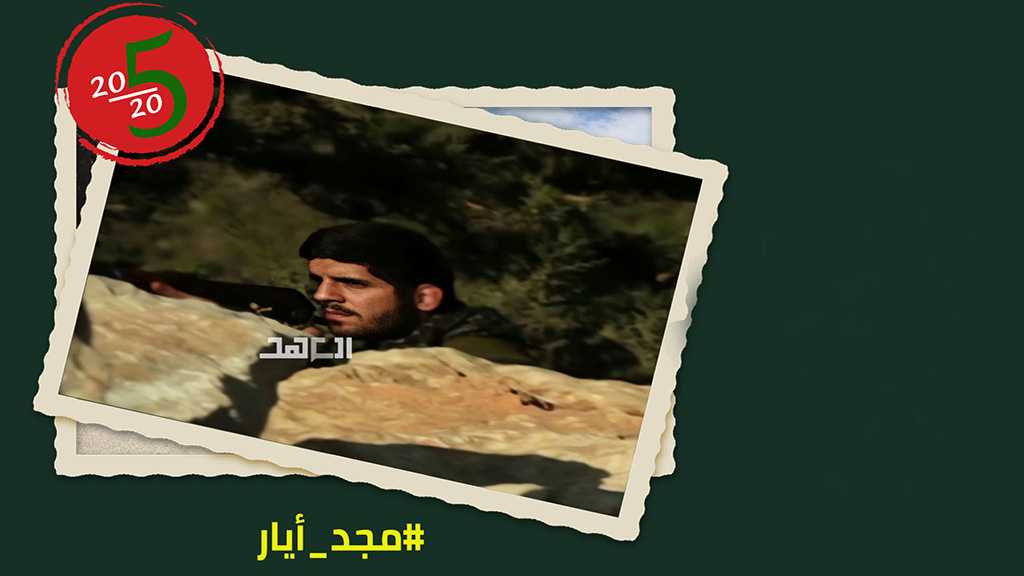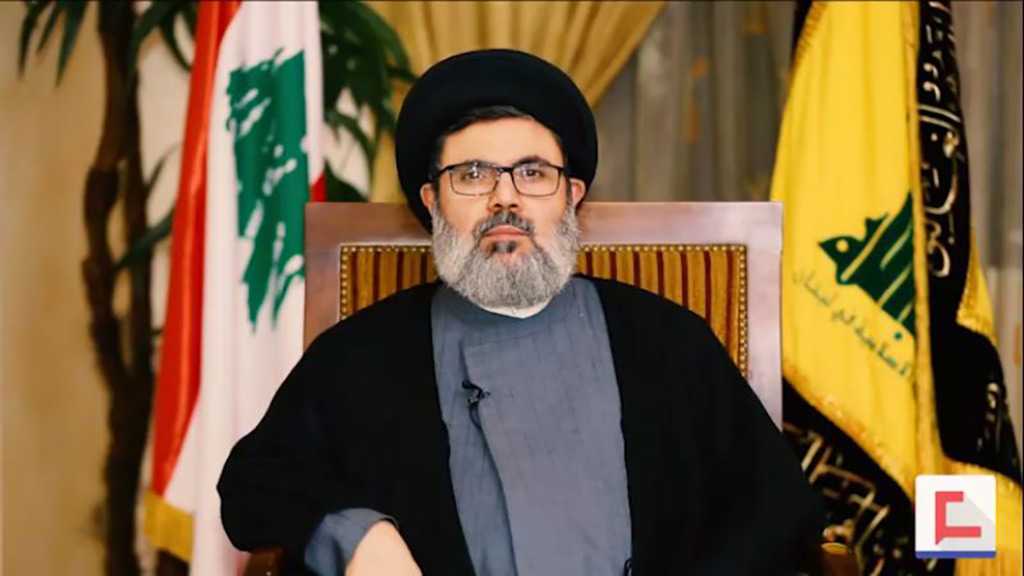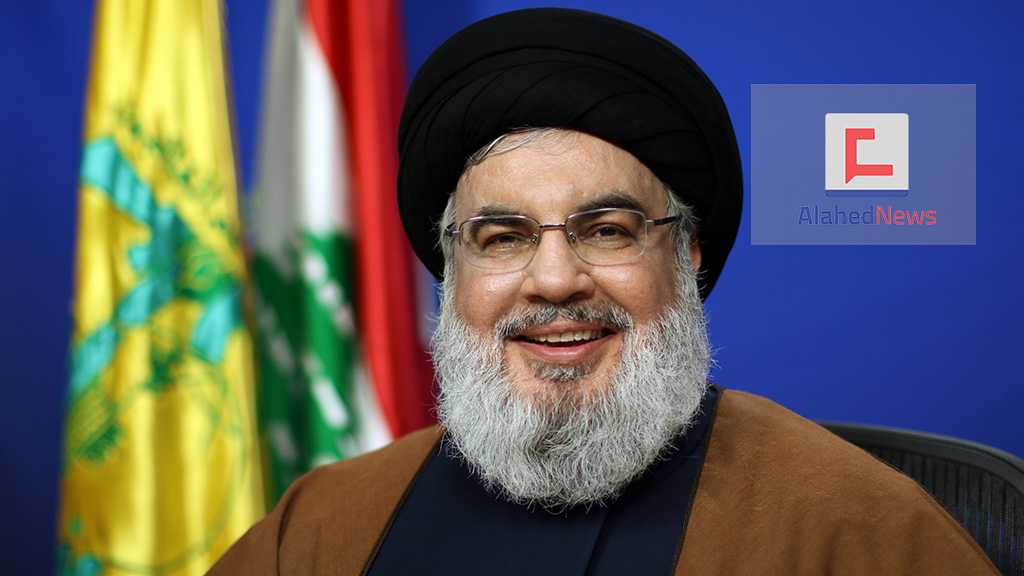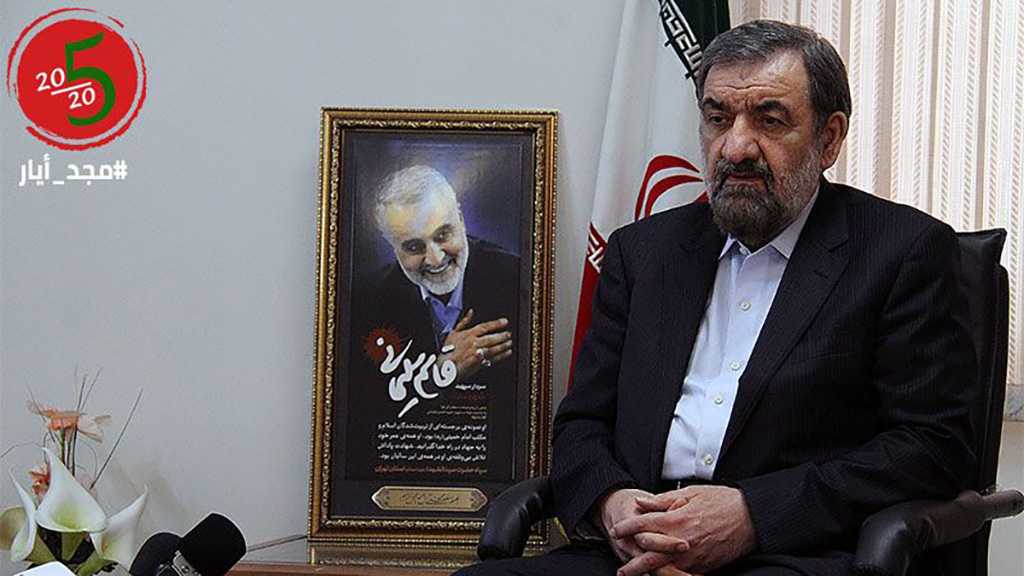
Untold Stories About The Two Martyrs, Sheikh Abu Dharr And His Son Ali

By Yassmine Moustafa
On May 15, 2000, Sheikh Aba Dharr’s name was engraved in the memory of the young and old. The Sheikh had complained to the Secretary General of Hezbollah that liberation has come, but his spirit has not yet joined the martyrs. After a long wait, he finally got what he hoped for. He was given a good ending. He attained the two best things. He was a witness to victory. And he was martyred on the path of dignity.
A victorious turban
In 1986, Abu Dharr returned from Iran, turbanized with the blessing of the architect of the Islamic Revolution, Ayatollah Imam Ruhollah Khomeini. He returned bearing in mind and heart Imam’s promise of victory. For Imam told him, "You will witness victory with this turban."
Many knew the Sheikh and experienced daily life with him. This was a time when being both a scholar and a fighters was rare. There was something special about the sight of him moving from one axis to another adorned with his white turban as a religious scholar and a fighter.
Our father Aba Dharr
"He was our father, our confidante, and the love of our hearts." These were the words uttered by everyone who spoke to us about him.
Jihadi leader Abu al-Fadl recalls the Sheikh’s movements. He was always on the move day and night, moving between axes and headquarters. Sometimes he’d be talking to the Mujahideen about religion and the world. Other times, he’d let his BKC machine gun – his sole companion – do all the talking.
“The Sheikh always insisted that His Eminence the Secretary General of Hezbollah Sayyed Hassan Nasrallah grant him a self-sacrificing martyrdom operation,” his friend Hajj Jawad tells Al-Ahd. “Sayyed would answer him, ‘If you, O Sheikh, do a martyrdom operation, we will rejoice for you. But your martyrdom will have a major impact on the psychology of the young men’."
This is how the light travels
The sheikh had few provisions, but he helped everyone around him, especially the Mujahideen. He was constantly traveling from one village to another and from one house to another because he was wanted by the “Israelis”. That’s why he adopted many security measures. The possessed only the most basic things in life and one car would have been sufficient to transport the furniture of his entire house.
Wounded resistance fighter, Mahdi Yassin, talks about Sheikh Aba Dharr’s asceticism and his high degree of humility: “Once I asked him why he didn’t buy new furniture for his house. Since he was a man of few words, he answered me briefly. ‘I assume that the landlord would want me to leave the house at any time, then I would have peace of mind and would not be preoccupied with moving the furniture. Man does not live in this world for the sake of Dunya [temporal world], but he lives for the Hereafter. He does not know when he will be leaving this world.’"
Only God knows one’s intentions
The wounded resistance fighter adds, “Once, the Sheikh returned from an operation with a group of Mujahideen. He then started washing their clothes and serving them. So, I told him, Sheikh, you were also with them. Why don't you sit down while we serve you? He did not reply, so we repeated the question. Then he said, ‘It is true that I was with the brothers during the same operation, but only God knows one’s intentions. Some of them might have better intentions than me. I want to earn a reward. So, perhaps if I gave someone water, I will be rewarded for serving a Mujahid.’”
Working for the Dunya and the Hereafter
Martyr Saleh Harb was a relative of Sheikh Abu Dharr's wife. After his martyrdom, the Sheikh supported the martyr’s young children, Hawra, Maryam, and Muhammad as the martyr’s wife fell ill.
"My parents did not distinguish between us and them," says Rouhollah, the son of the Sheikh. "We were seven children who lived in one humble house, and my father's kindness and affection embraced us all."
“He was very good to us. He never went out for a picnic without us and never left the house before checking up on us. He never ate unless we are all there. He considered our presence as a blessing in his life and sought to earn rewards [from Allah] through us. He was very patient. We were seven children including his children. He cared about our studies and helped us. He would never ever tire,” said Mariam, the daughter of martyr Saleh.
Khomeini style
Mariam, along with the Sheikh’s family, often moved residences. However, there was one thing in common in all those houses.
"The first thing that grabs your attention in all the houses we moved into were the pictures of martyrs and the Leader Ayatollah Imam Ali Khamenei on the walls, and even on the doors and closets. The house was more like a center than a home. The living room as well as the sitting room consisted of two mattresses each. As for kitchen utensils, they only included the most basic things that a person needs for everyday life.”
Mariam did not forget the martyr's very humble Volvo and his simple turban – worn Khomeini style.
To God’s door
Maryam says that every time he left the house, they would ask about his destination – “Sheikh, where are you going?”
His answers would always be "to God’s door".
“We’d know that he is going to the axes. This work made him feel very happy.”
“All of our trips with him were visits to the Mujahideen and the families of the martyrs and to attend festivals hosted by the resistance. He was one of a kind and an exceptional person. But he rarely returned home due to the nature of his work. We missed him so much that we used to look at the parking spot near the building where he’d park his car. On rare occasions we’d see his car parked there, we were overwhelmed with happiness."
In the middle of the dark nights, Mariam would wake up to Sheikh’s recitation of the Qur’an. She would feel serene while he read Ziyarat Ashura. This left an imprint on her heart.
“We used to wake up for morning prayer every day. He would wake us up one by one and accompany us as we performed ablution. He insisted that we read 50 verses from the Holy Qur’an every day. He also put verses from the Qur’an and proverbs on the doors of each room. I still remember a number of them: ‘Do not tell the prayer I have lessons but tell the lessons I have prayer.’ Even now, whenever I hear the Adhan [call for prayer], I remember this phrase, leave what I’m doing, and go to pray."
Ali, Sheikh's son, becomes a martyr
Martyr Ali was Sheikh Aba Dharr’s eldest child. He was his father's successor and the breadwinner of the family after him. His mother relied on him since the age of 12, and he was the father to his younger brothers.
At dawn on May 25, 2015, Ali decided to commemorate his father’s memory differently. He headed towards Syria to teach the Takfiris a lesson as his father did with the “Israeli” occupation – the other face of Takfiri terrorism.
The objective of the battle was to liberate the strategic Al-Thallaja Hill in Syria’s Flitah. The hill is more than 2000 meters high and is a rugged, open area with no trees.
"O Sadiq Sadiq, head with five of the Mujahideen to the hill quickly. The men there are isolated, and the number of martyrs and wounded is high."
This is what the jihad companion of martyr Ali Sheikh "Sadiq" heard at 4:30 a.m. on the radio. He went to wake the martyr and the rest of the comrades.
At the top of the hill, the smell of gunpowder was overwhelming, and the sound of rocket-propelled grenades and bullets disturbed the usual calm at dawn. No one could raise his head without getting wounded. An intervention force of eight members from Hezbollah’s Radwan Unit advanced. Ali, the son of the sheikh of the resistance martyr Ahmed Yahya (Aba Dharr), was one member of that group.
"We did not know what was waiting for us on the top of the hill except that we were going to support the advancing forces in the battle, but the surprise was that there were martyrs and wounded on the ground," Hussein, the company commander and martyr Ali’s childhood friend, tells us.
"Guys, our group leader, Sajid al-Tiri, has been martyred." These words resonated throughout al-Thallajah Hill.
“Martyr Ali showed unmatched valor. He was fierce and started running towards the militants, opening fire on them. His courage sparked enthusiasm in our hearts. He was the first to arrive at the top of the hill. When a colleague of ours was wounded near him, he turned to him to aid him. At that moment, he was directly shot in the head and was martyred. I got to him and hid his body behind a small rock, and we continued the battle," Hussein says.
They are alive, but you don’t perceive it
Sheikh Sadiq, a wounded fighter, tells us about his companion in jihad.
"The battle of the Zabadani Hills in Syria was the reason we first met. There, I heard him talking on the walky-talky with his company commander amid heated clashes. As he spoke, he did not stop mentioning the Prophet’s household (PBUT). As he advanced in the fighting, you would hear him call out: O God, O Zahraa.”
Sheikh Sadiq was the one who woke up Ali at dawn on May 25 to join the battle.
“Ali did not drink water and did not ask me for a few minutes until he prepared himself. As we reached the top of the hill, I said: ‘God’s peace be upon the injustice that befell you O Aba Adullah al-Husayn.’ The number of the wounded and martyrs was high. It was a tough day, but martyr Ali displayed a unique leadership spirit. He quickly divided the tasks. He took the lead in securing the right side, and the rest of the members secured the left side.”
"Ali's martyrdom was hard on us and difficult to accept. He was exceptional. Him advancing first was an act of great altruism and sacrifice," Sheikh Sadiq says with a lump in his throat.
The month of May brought father and son together. Its spring breeze carried freedom to people worthy of it.
The martyrdom of the Sheikh and his son sum up the resistance’s march that did not wane or withdraw. Its Mujahideen are along the frontlines in Lebanon’s south fighting the “Israeli” enemy as well as in Syria and the Syria-Lebanon border facing the Takfiri enemy.
As for the objective, it is safeguarding the nation and protecting the land and honor. For that purpose, the choice is between one of the best two [victory or martyrdom].
Comments


